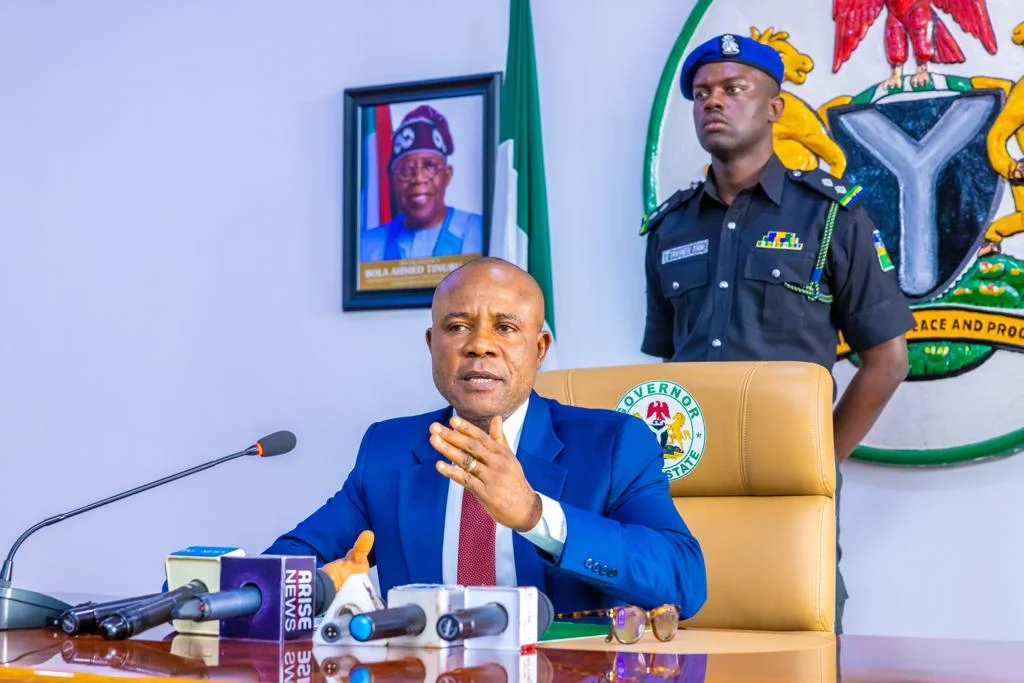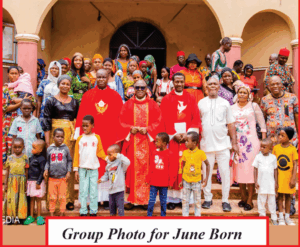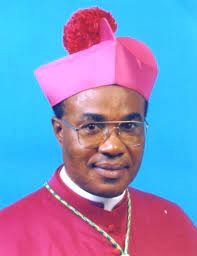Implications of elected Enugu Council chairmen residing in Enugu metropolis

By MAURICE OKAFOR.
INTRODUCTION.
It is a welcome development that the present administration in Enugu state led by Governor Peter Mbah, has ordered a verification of members of staff in each of the 17 local government areas of the state.
Without a doubt, the exercise will help to fish out the alleged enrolment of ghost workers in the councils and improve the production output of the authentic workers.
However, the customised ugly culture in the state whereby elected local government chairmen abandon their supposed residences in the hinterland to reside in the Enugu metropolis is a serious cankerworm undermining the administration of Enugu council areas and the pace of grass root development in Enugu state…..
Currently, the system of democratic governance in Nigeria revolves from the federal government to the 36 states of the federation, Abuja, the federal capital territory and the 774 local government areas across the federation. This tripartite arrangement provides for three tiers of government which are independent in revenue collection, generation and expenditure but harmoniously interrelated in their duties to render the best of services to Nigerians and enhance socio infrastructural development of the nation at large.
The 1999 constitution provides for a monthly allocation from the federation account to these 36 states and 774 local government areas administration respectively for their erroneous task of recurrent expenditures and executing the social contract they signed with the people. In addition to the monthly allocation from the federation account, each of the 36 states and 774 constitutionally recognized council areas are at liberty to develop initiatives of increasing their respective internally generated revenue[IGR]sources to augment what they earn from the monthly Federation account.
Enugu state produced 17 out of the 774 constitutionally recognized council areas in the federation that get monthly allocation from the federation account for payment of salaries to staff, other services they render to the grassroots and for advancing the cause of socio-infrastructural development of their communities to make life more meaningful to the rural dwellers.
In line with the provisions of the 1999 constitution, Enugu state ranks among the best states that are regular with the conduct of local government elections to produce elected council chairmen and councillors who are usually the pilots of council administration in the 17 local government areas of the state. The state’s version of INEC called the Enugu State Independent Electoral Commission[ENSIEC] is in charge of this noble obligation, which it organizes every two years.
The primary duties of every local government administration include service delivery at the grassroots, building public low-cost homes, rural road maintenance, building and maintaining public parks, increasing training opportunities for the community dwellers advocating government policies to the rural dwellers, etc.
How effective the local government system in Enugu state which is the alter ego of grass root oriented and rural-based governance has performed since 1999 to the present time has been generating mixed reactions among the grassroots and concerned citizens when equated to the millions of naira that have gone into the system from the federation account and other sources[IGR].
Checks revealed that the rate of urbanization of the Enugu metropolis which originally was founded in 1909 and from all indications is older than Enugu state which was created in 1991 from the old Anambra state shows that several communities in four out of the 17 local government areas of the state are currently en gulped with the urbanization of the city metropolis. These four local government areas are Enugu North local government area, with headquarters beside Ogbete main market,t Enugu South with headquarters at Uwani and Enugu East Council area with headquarters at Nike.
The other fourteen local government areas namely Awgu, Aninri, Udi, Oji River, Ezeagu, Nkanu East, Nkanu West, Isi Uzo, Udenu, Nsukka, Igbo Eze North, Igbo Eze South, Igbo Etiti, and Uzo Uwani local government areas are a bit distance away from the city metropolis while many are far off and yearning for initiatives that will lure social amenities to their domain. That to a large extent places huge responsibilities on the respective council chairmen who are elected to administer those council areas. The
Notably, the Council chairmen have the obligatory role to pay their local government staff, primary school teachers, community leaders, and party faithful. But beyond that, the provision of social amenities to enhance the living conditions of rural dwellers, security of the rural dwellers, maintenance of rural roads to provide interconnectivity, the establishment of mini markets, motor parks and other social services from which they can equally generate internally generated revenue are high expectations of the rural dwellers and concerned citizens from every elected chairman of their local government area at any point in time.
Research findings conducted by this magazine show that many of the local government chairmen in Enugu state hold vintage positions as umpires of their council areas at various times and those in power at the moment are not living up to the expectations of their duties and responsibilities based on their poor understanding of the magnitude of their responsibilities and the sacrifice it demands to perform maximally. It is either the fact that many of them have a poor orientation of their responsibilities or deliberately do things they wish for their selfish interest at the expense of projects that would impact the lives of their people.
It is disheartening to note that most of the local government chairmen who presided over the affairs of their council areas and even at the moment operated from the Enugu metropolis and were highly disconnected from the rural dwellers depend on second-hand information all the time note events and incidences instead of being on grou8nd to grasp events as they occur and execute instant actions that would be for the benefit of all.
A flashback to the ugly culture which some development analysts describe as the major setback hindering the development of Enugu state rural areas shows that at the inception of the Fourth democratic dispensation in 1999, the again state administration led by Senator Chimaroke Nnamani encouraged the harmonious working relationship and development piercing into the rural communities through partnership projects with the serving council chairmen. To that extent, the local government chairmen were accountable to the state administration for their various responsibilities through the office of the then commissioner for the local government area, the late Prince Sam Ejiofor. The Joint Account system with the state government to an extent enabled the relocation and development of the Enugu State University of Science and Technology[ESUT] at its current permanent site at Agbani, the modernization of the Park-lane General Hospital into a teaching hospital and some other laudable projects across some communities. However, some of those chairmen at that time used the advantage of close working relationships and administrative meetings with the executive arm of government to rent houses in the city metropolis. Many bought and developed plots of their own within the metropolis, relocated their families and worked from the Enugu metropolis to their council headquarters.
The ugly culture got worse within the tenure of ex-governor Sullivan Chime. Even some of the elected ward councillors who were empowered with car loans and huge allowances relocated with their families to the Enugu metropolis. The avalanche of the specially made ‘Chevrolet cars’ with registration numbers of some of the local government areas in the hinterland and seen in the streets of Enugu metropolis going on school runs and several other domestic duties asserts the fact that their owners live right away within the metropolis. The negative impact of the attitude was the fact that both some chairmen and their councillors became visitors to their council areas where they are supposed to be the number one citizens and at the top of incidences as they occur in their communities. Many of the councillors visited their council headquarters from Enugu only on the days of their legislative sittings.
The resultant effect of the ugly culture melted down many of the local government workers in the council areas in the hinterland. They developed the habit of coming to work on those special days when their local government chairman would come to the office and steadily during month ends in expectation of their salary and other emoluments.
The immediate past administration in Enugu state led by ex-governor Ifeanyi Ugwuanyi could not reverse the ugly culture which became endemic in the Enugu state local government system. Even though ex-governor Ugwuanyi at a point urged the elected council chairmen to reside in their council headquarters the policy lacked action of enforcement.
A political Scientist cum educationist, Professor Godsmark Eddy, who chaired Igbo Eze South local government area in the third republic in a chat with this magazine said in their own time, they imbibed the culture of living and mixing up with the rural dwellers, which enabled him to have a grasp of the pains of their people and the solutions that would also be the best approach in solving every human-related problem in line with the culture of those concerned. He said every elected and serving chairman is not supposed to be disconnected from the grassroots unless he does not want to run transparent and people-oriented programmes,
A Development Scientist, Mr Hillary Kenechukwu in a chat with this magazine that the democratic system in Nigeria is such that shared responsibilities among the three tiers of government in Nigeria, as shared modes of their operations and responsibilities as common sense permits, even if there are no laws in the constitution yet to back it. He stressed that the local government chairmen and the Councillors are supposed to be residing in their council areas.
His words, ‘In every democratic dispensation, an elected President of Nigeria relocates to the presidential villa called Aso rock. The legislators move into the National Assembly and their quarters. In the same vein, the elected governors move into their respective government house and governor’s lodge. Therefore, the elected council chairmen in Enugu state and the ward councillors should have their offices and residential quarters at their various council headquarters to enable them to be on the ground with issues happening in their council areas. They should not be escape goats to the pains of their communities. They experience such pains as such to be able to proffer reliable solutions to the problem relatively with the stakeholders’
He described every elected council chairman who abandons their local government headquarters to reside in the Enugu metropolis as constituting to underdevelopment of their council area instead of adding to its development. He stated, ’ Out-of-the-pocket expenses he makes in the township would have added to the purse of rural retailers and market women. His presence in the community would discourage the rate of rural-to-urban migration of youths in his council area. Thinking out of the box would equally enable him to initiate ideas of creating menial jobs for the unemployed youths etc’.
A lecturer who does not want his name to be quoted in print said an elected local government chairman is both politically and economically empowered to be the number one citizen of his council area, stating that confers on him the responsibility of the chief security officer of his council area, to act effectively at emergent situations to halt any unusual activities utilizing the security apparatus available at his council and seeking for reinforcement from the state government instantly when the situation is above his control.
He asserted that the incessant menace of suspected Fulani herdsmen who ravaged many communities would not have been severe if the council chairmen were residing in the localities and mobilized for instant action using the services of forest guards and local vigilantes for proactive actions at any point in time they were alerted with information of invasion of suspected Fulani herdsmen and their cattle.
This magazine’s further findings reveal that lack of commitment and urge for self-luxury are the basic reasons why most of the local government chairman whose councils are in the hinterlands decides to move their abode to the Enugu metropolis. The reason for administrative convenience with state government representatives is that they do not hold water since such meetings are not held daily.
Public analysts who aired their view on this matter to this magazine holds the view that the present administration in Enugu state led by Governor Peter Mbah can reverse the ugly culture of elected local government chairmen abandoning their council headquarters to live in Enugu metropolis by sponsoring a by law in the state house of assembly that will make it mandatory for every elected local government chairman and councilors ’to reside at their council headquarters compulsorily within the tenure of their service. They hold the view that the idea will enable the council chairmen to be responsible and responsive to incidences and events that occur in their areas, with actions.
The group also suggested that the Ministry of Local Government in the state should mandate the commencement of erecting permanent residential areas that would be the official residence of every elected council chairman and other top officials involved in the local government administration, in the council areas where such quarters are not yet obtained. They asserted that the idea would also boost the socio-economic development of the council areas in the hinterland, attracting economies of scale when such settlements are created.
They advocated that henceforth chairmanship aspirants who do not wish to live in their council headquarters would not be permitted by the various parties to seek nomination since they don’t want to pay the solemn sacrifice of contributing to the development of the rural areas but in inadvertently siphoning funds generated in the council as federal allocation and through IGR for luxury in Enugu metropolis.
There are strong expectations that the current tour of the 17 local government areas embarked upon by the Commissioner for Local Government, Rural Development and Chieftancy matters, Hon Deacon Okey Ogbodo, on the directive of the state government will fine-tune solution to the ugly culture of elected government chairmen in Enugu state who relocates from the hinterland to reside in the city metropolis, By so doing, becoming visitors to their council areas instead of living in their respective council headquarters, which would enable them to have firm grip and grasp of events as they emanate in council area.
A senior Civil Servant in Enugu state, who was given assurance that he would not be mentioned in print stated, ‘It is perilous that previous administrations in Enugu state since the inception of the fourth democratic governance in 1999 either encouraged or failed to address this ugly trend for pecuniary reasons. But now that the present administration in the state led by Governor Peter Mbah is optimistic about letting the local government system as a third tier of government work for the benefit of the people, the elected council chairmen should live with his people to work for them. It calls for sacrifice and those who are not ready should not go for it.






